
Olivia, age 36, dragged herself slowly into the consulting room. “I’m running on empty,” she said. She slumped in her chair and described how hard it was to get out of bed in the mornings and get through the ordinary tasks of daily life, much less to motivate herself to do anything beyond them.
Olivia said she’d had to give up an interesting academic job that she loved. “My brain had turned to mush,” she said. “I can’t catch my own thoughts.” She had very little appetite and yet had put on a lot of weight, which she couldn’t shift, partly because she was too exhausted to exercise. She was cold, constipated and puffy—all the classic signs of low thyroid hormone.
In the preceding eight years, she’d had two cysts removed from a breast, a cyst removed from an ovary, and half her thyroid gland removed due to goiter. Goiter is a swelling of the thyroid gland due to deficiency of iodine.
A hundred years ago, this would have been instantly recognized by any doctor. It was called “Derbyshire neck” in the UK because Derbyshire is an inland region very far from the sea, and foods containing iodine grow only in or near the sea. In the days when our food was all exclusively locally grown, people in Derbyshire (and Switzerland, for the same reason) were prone to iodine deficiency and to the resultant swelling of the thyroid.
Olivia had had half her thyroid gland surgically removed without anybody inquiring about her diet or measuring her iodine levels. When I examined the remaining half, I found it was hard and swollen, and she admitted swallowing was painful.
Esta historia es de la edición June/July 2023 de What Doctors Don't Tell You Australia/NZ.
Comience su prueba gratuita de Magzter GOLD de 7 días para acceder a miles de historias premium seleccionadas y a más de 9,000 revistas y periódicos.
Ya eres suscriptor ? Conectar
Esta historia es de la edición June/July 2023 de What Doctors Don't Tell You Australia/NZ.
Comience su prueba gratuita de Magzter GOLD de 7 días para acceder a miles de historias premium seleccionadas y a más de 9,000 revistas y periódicos.
Ya eres suscriptor? Conectar
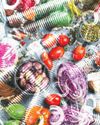
Metalhead
Could toxic heavy metals be making you ill? Here's how to spot the signs and symptoms, says Dr Leigh Erin Connealy, and your action plan for effective detox

Good bones
There's a lot of fearmongering when it comes to the risk of fractures in older women, says Marcelle Pick. Here's what you need to know and how to look after your bones naturally
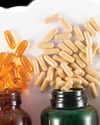
Supplements in the spotlight
Confused about supplements? Dr Jenny Goodman has the lowdown on why we need them, how to choose a top-quality product and the ingredients to avoid
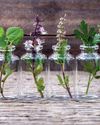
Essentially balanced
These essential oils can help you soothe stress, balance your hormones and feel like your best self again
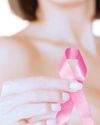
An integrative approach to breast cancer
Blending the best of integrative medicine with the best of conventional medicine gives the greatest chance of healing breast cancer, says Dr Leigh Erin Connealy
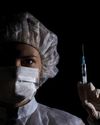
THE NEEDLE'S EDGE
An intriguing new theory says it's not what's in the jabs but how the needles are inserted that explains the rampant and varied Covid vaccine damage. Celeste McGovern investigates the Bolus Theory
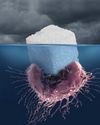
How sugar causes cancer
Amajor breakthrough in cancer research has discovered that sugar-usually from fast food-switches off our cancer-fighting genes

The illusion of the magician
Howrelative risk makes a drug seem effective when it’s not

Of pesticides and PMS
Detoxing from a hormone-disrupting herbicide, along with getting the right nutrition, was the answer to a patient’s debilitating PMS, says Dr Jenny Goodman

Not just a phase
Is your workout working against your hormones? Debra Atkinson explains why and how to exercise with your hormonal cycle for the best results